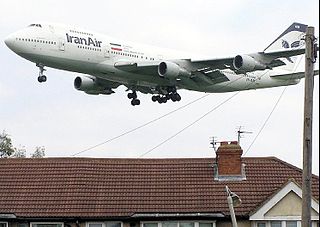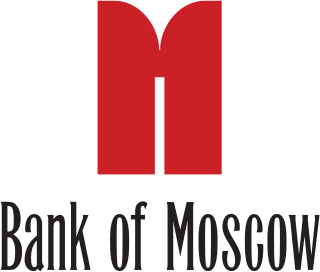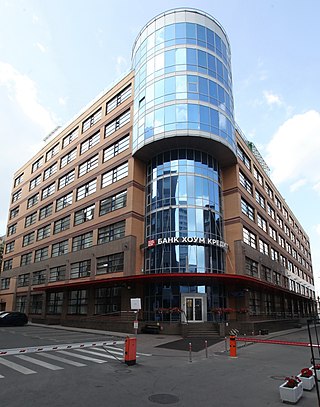
The Office of Foreign Assets Control (OFAC) is a financial intelligence and enforcement agency of the United States Treasury Department. It administers and enforces economic and trade sanctions in support of U.S. national security and foreign policy objectives. Under presidential national emergency powers, OFAC carries out its activities against foreign governments, organizations, and individuals deemed a threat to U.S. national security.

Viktor Felixovich Vekselberg is a Russian-Israeli businessman and oligarch. He is the founder and chairman of Renova Group, a Russian conglomerate. According to Forbes, as of November 2021, his fortune is estimated at $9.3 billion, making him the 262nd richest person in the world. Born in Ukraine, he has Russian, Israeli and Cypriot citizenship.

United States sanctions are financial and trade restrictions imposed against individuals, entities, and jurisdictions whose actions contradict U.S. foreign policy or national security goals. Financial sanctions are primarily administered by the U.S. Department of the Treasury's Office of Foreign Assets Control (OFAC), while export controls are primarily administered by the U.S. Department of Commerce's Bureau of Industry and Security (BIS).

The International Emergency Economic Powers Act (IEEPA), Title II of Pub. L. 95–223, 91 Stat. 1626, enacted October 28, 1977, is a United States federal law authorizing the president to regulate international commerce after declaring a national emergency in response to any unusual and extraordinary threat to the United States which has its source in whole or substantial part outside the United States. The act was signed by President Jimmy Carter on December 28, 1977.

VTB Bank is a Russian majority state-owned bank headquartered in various federal districts of Russia; its legal address is registered as St. Petersburg. As of 2022, the company's capital stock was mostly owned by three Russian agencies.

Alexey Viktorovich Kuzmichev or Kousmichoff is a Russian businessman. He is one of the founders of the LetterOne Group (LetterOne) and the Alfa Group.

Following the Iranian Revolution, the United States has since 1979 applied various economic, trade, scientific and military sanctions against Iran. United States economic sanctions are administered by the Office of Foreign Assets Control (OFAC), an agency of the United States Department of the Treasury. As of 2017, United States sanctions against Iran include an embargo on dealings with the country by the United States, and a ban on selling aircraft and repair parts to Iranian aviation companies.
The Cuban Assets Control Regulations, (CACR) 31 CFR 515, generally regulate relations between Cuba and the U.S. and are the main mechanism of domestic enforcement of the United States embargo against Cuba.

The Bank of Moscow was a Russian bank that provided banking services to both corporate and retail customers until May 2016. Headquartered in Moscow, the bank had 267 outlets, including branch offices and cash desks. BoM had over 114,000 corporate and 9 million retail customers. In 2011, it was the fifth largest bank in Russia. As of 1 July 2016, it had 6.3 million banking cards in its portfolio. Its central office was located in the building of the Moscow International Bank in Moscow, on the corner of Kuznetsky Most and Rozhdestvenka streets.

The Ukraine Support Act was a proposed act of congress that would have clarified U.S. policy to support the sovereignty and territorial integrity of a democratic Ukraine, and in condemning Russia's illegal annexation of Crimea. The bill would offer loan guarantees, various types of aid, and place sanctions on people who were "responsible for or engaged in actions that undermine democratic processes in Ukraine or that threaten its peace or territorial integrity, acts of significant corruption in Ukraine, or the commission of serious human rights abuses."

The Specially Designated Nationals and Blocked Persons List, also known as the SDN List, is a United States government sanctions/embargo measure targeting U.S.-designated terrorists, officials and beneficiaries of certain authoritarian regimes, and international criminals. The list is managed by the U.S. Treasury’s Office of Foreign Assets Control (OFAC). When individuals are added to the list of Specially Designated Nationals (SDN), their U.S. assets are blocked. Moreover, their names are added to automated screening systems used by banks in the United States and many foreign countries, making it difficult for them to open or hold accounts, transfer money, or transact properties internationally. Any individual or entity that provides support related to terrorism, drug trafficking or unauthorized military use to any person or entity appearing on the SDN list risks being penalized under the USA PATRIOT Act.
International sanctions have been imposed against Russia and Crimea during the Russo-Ukrainian War by a large number of countries, including the United States, Canada, the European Union, and international organisations following the Russian annexation of Crimea, which began in late February 2014. Belarus has also been sanctioned for its cooperation with and assistance to Russian armed forces. The sanctions were imposed against individuals, businesses, and officials from Russia and Ukraine. Russia responded with sanctions against several countries, including a total ban on food imports from Australia, Canada, Norway, Japan, the United States, the EU and the United Kingdom.
Novikombank is a Russian bank specializing in financing of enterprises in the heavy-machinery, automotive, high-tech, oil and gas industry. Novikombank is ranked among the top 40 largest Russian banks. Member of the deposit insurance system.

Home Credit Bank is a Russian retail bank headquartered in Moscow. It was registered by the Bank of Russia in 1992 under the name Innovation Bank "Technopolis". It was acquired by the Czech finance group Home Credit in 2002, after which the bank was rename HCF Bank. It specialises on providing installment loans for online purchases.
Yuri Alekseevich Soloviev is a Russian-British banker who was first deputy president and chairman of the VTB Bank Management Board. He was sanctioned by the United States after Russia invaded Ukraine in February 2022.

International sanctions against Afghanistan were implemented by the United Nations in November 1999. The sanctions were initially aimed at terrorists, Osama bin Laden and members of Al-Qaeda. The United States, the United Kingdom and the European Union also impose sanctions on Afghanistan.
The United States government applies economic sanctions against certain institutions and key members of the government of the People's Republic of China and its ruling Chinese Communist Party (CCP), certain companies linked to the People's Liberation Army (PLA), and other affiliates that the U.S. government has accused of aiding in human rights abuses. The U.S. maintained embargoes against China from the inception of the People's Republic of China in 1949 until 1972. An embargo was reimposed by the U.S. following the 1989 Tiananmen Square protests and massacre. From 2020 onward, the U.S. imposed sanctions and visa restrictions against several Chinese government officials and companies, in response to the persecution of Uyghurs in China, human rights abuses in Hong Kong and Tibet, military-civil fusion, support for the Russian invasion of Ukraine, and fentanyl production.
Task Force KleptoCapture is a United States Department of Justice unit established in March 2022 with the goal of enforcing sanctions on Russian oligarchs in response to the Russian invasion of Ukraine.

The United States has supported Ukraine during the ongoing Russian invasion of Ukraine. After it began on 24 February 2022, President Joe Biden condemned the invasion, provided military, financial and humanitarian aid to Ukraine, and imposed sanctions against Russia and Belarus.












